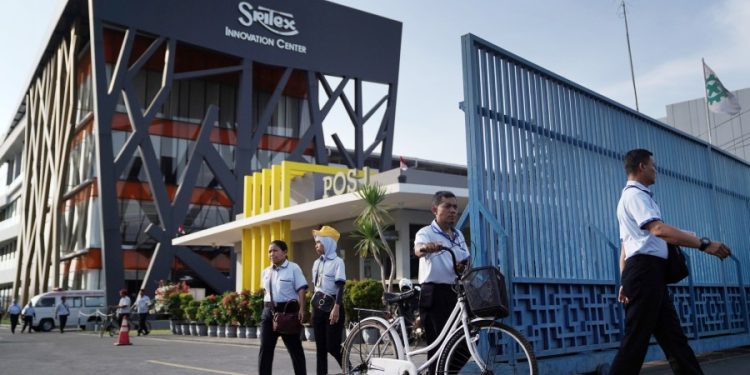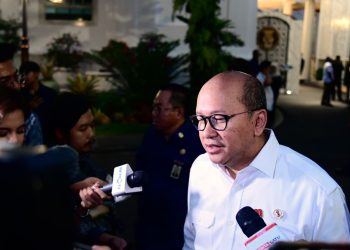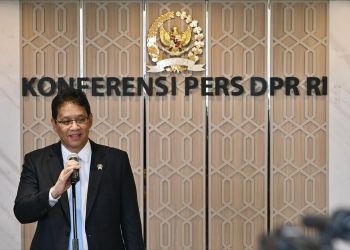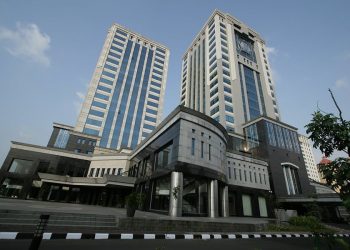Jakarta, Indonesia Sentinel — PT Sri Rejeki Isman Tbk (Sritex), Indonesia’s largest textile manufacturer, is facing an uphill battle to sustain its operations after the Supreme Court upheld a bankruptcy ruling against the company. The decision, issued by the Semarang Commercial Court, has forced the company to furlough around 3,000 workers and left its management scrambling to maintain operations while seeking legal recourse through a judicial review.
“Approximately 3,000 employees have been furloughed, and we continuously review the situation to determine how long we can sustain this,” said Iwan Kurniawan Lukminto, Sritex’s President Director, in Sukoharjo, Central Java, on Friday, December 20, 2024.
Operational Constraints and Imported Raw Materials
The company’s operational capabilities have been further constrained by reliance on imported raw materials, particularly chemicals, essential for textile production.
“A significant portion of our raw materials must be sourced from abroad. We are actively exploring local alternatives to minimize disruptions,” Iwan explained.
Despite the challenges, he expressed optimism, emphasizing that Sritex remains committed to fulfilling its responsibilities and adhering to government mandates to keep the company operational.
Government Support and Economic Implications
Indonesia’s Coordinating Minister for Economic Affairs, Airlangga Hartarto, has pledged government support to ensure Sritex’s operational continuity. Speaking in Jakarta on December 20, Airlangga stated, “The government is committed to ensuring Sritex can continue its operations to prevent further layoffs. We are working closely with creditors, including PT Bank Negara Indonesia (BNI), to align their objectives with the government’s vision.”
As part of this support, the government has introduced various incentives to bolster labor-intensive industries like textiles. These measures include a 5% interest subsidy on investment loans for businesses with credit ranging from IDR 500 million ($32,000) to IDR 10 billion ($640,000).
“This initiative encourages businesses to modernize machinery and enhance competitiveness,” Airlangga added.
Additionally, the government has implemented tax incentives, including the absorption of income tax (PPh 21) for workers earning up to IDR 10 million ($640) per month. The administration has also optimized unemployment insurance (JKP) from BPJS Ketenagakerjaan and offered a 50% discount on workers’ compensation premiums for industrial sectors.
Efforts to Secure Business Continuity
Sritex has four production facilities—two in Semarang, one in Boyolali, and its headquarters in Sukoharjo. The company’s management has been in constant communication with court-appointed administrators to establish a “going concern” strategy to ensure business continuity. However, no definitive resolution has been reached.
“A going concern is essential for sustaining operations and supporting our workforce. We are doing everything we can to navigate these challenging circumstances,” said Iwan.
BRI Cyber Attack Investigates: Confirms No Ransomware Attack Detected
Industry Outlook and Export Potential
Despite Sritex’s challenges, Airlangga pointed to positive signs in the broader textile and lifestyle industries. Indonesia’s export of textile products showed growth in the third quarter of 2024, reflecting sustained demand for Indonesian-made goods.
Notably, an international sportswear brand has placed orders with seven Indonesian factories, generating an estimated $10 billion in revenue.
“This demonstrates the global appeal of Indonesia’s lifestyle products,” Airlangga noted.
Looking Ahead
While Sritex’s future remains uncertain, the Indonesian government’s efforts to provide financial relief and encourage modernization could offer a lifeline to the struggling textile giant. Whether these measures will suffice to restore the company’s stability and protect its workforce remains to be seen.
(Becky)


























